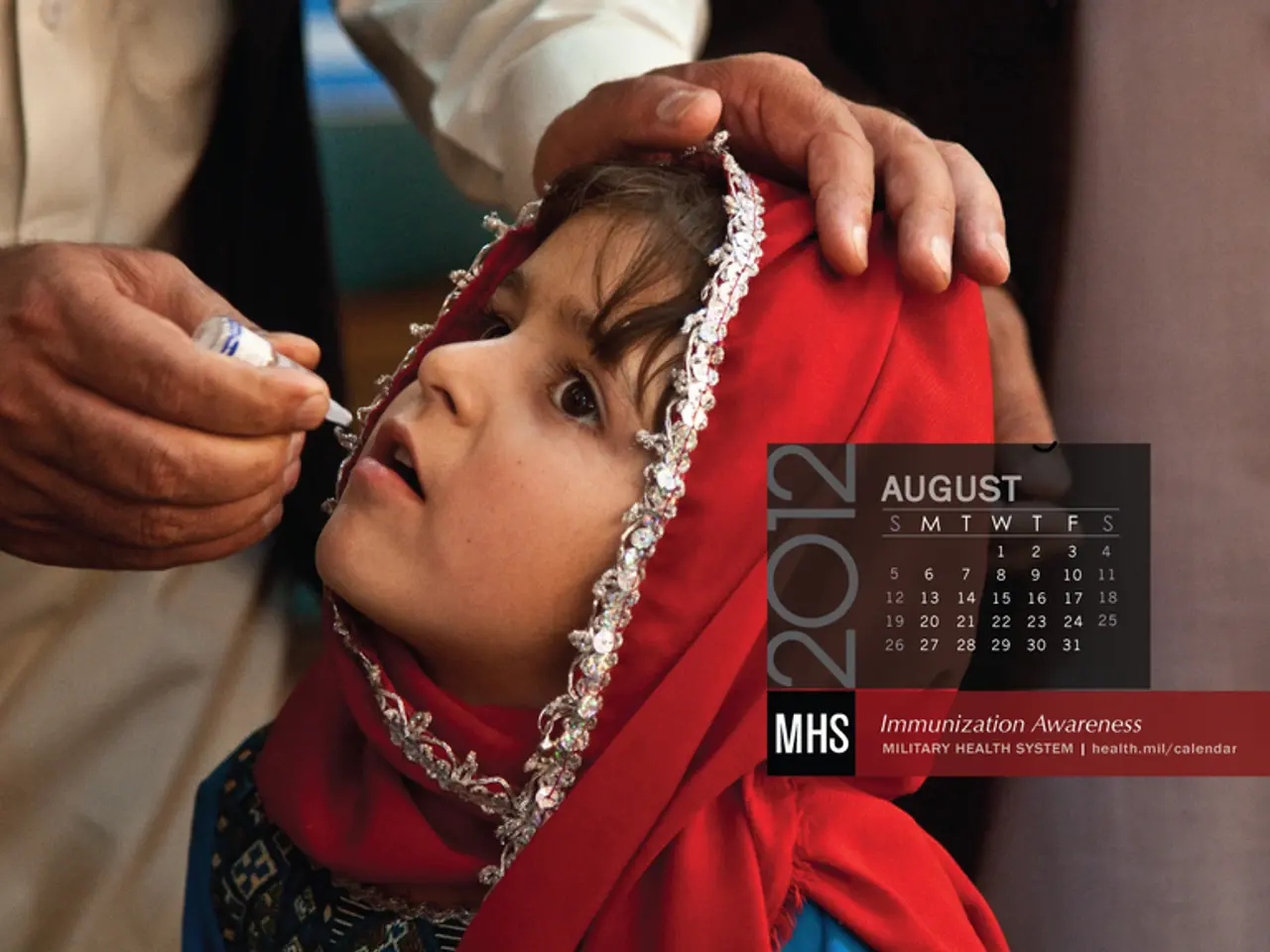Expand HPV vaccination initiative among Kazakhstan residents up to age 45 years
In Kazakhstan, a recent petition has been initiated to extend the age range for state-funded HPV vaccination, aiming to address the need for vaccination among adult women. Currently, HPV vaccination in the country is only available to adolescents aged 12-14, with a catch-up campaign for 11-13-year-olds.
The petition calls for HPV vaccination to be covered by compulsory health insurance and offered on a voluntary basis for adult women aged 25 to 45. This proposal comes as many countries have already included HPV vaccination for women up to 45 years old in their national recommendations.
The peak incidence of cervical cancer in Kazakhstan occurs at the age of 40-44, and the disease is a significant health issue in the country, with approximately 600 women dying from cervical cancer each year. The limited availability of HPV vaccination to only adolescents is a concern for the petition's authors, who emphasize the cost-effectiveness of HPV vaccination compared to the high costs of treatment.
In private clinics in Kazakhstan, one dose of the HPV vaccine costs 100-120,000 tenge, and the full course (three doses) is often inaccessible to women in the regions. The cost of a full course of HPV vaccination in private clinics is much higher than the cost of the state-funded program, making it inaccessible for many women.
The high cost and limited availability of HPV vaccination in private clinics is a barrier to access for many women in the regions. The petition authors appreciate the Ministry of Health for the adolescent vaccination program, but request access for adult women aged 25 to 45.
As of early 2025, Kazakhstan's HPV vaccination program targets primarily girls aged 11-13. The World Health Organization reports that over 95% of cervical cancer cases are caused by HPV, making the expansion of HPV vaccination to adult women an important step in cervical cancer prevention.
However, explicit data on the price or economic evaluation of expanding HPV vaccination to adult women in Kazakhstan are not found in the available sources. Affordable single-dose vaccines, such as Cecolin, have been globally endorsed and may reduce barriers if adult vaccination is adopted in Kazakhstan.
The World Health Organization recommends vaccination mostly for girls aged 9-13 to maximize impact and cost-effectiveness, with regular cervical cancer screening advised for women aged 30-49, particularly in resource-limited settings. Many countries follow these age guidelines, and adult vaccination policies vary, often influenced by cost-benefit, supply, and local epidemiology.
In summary, Kazakhstan currently vaccinates pre-adolescent and early adolescent girls but has not yet officially expanded routine HPV vaccination to adult women. A public proposal to allow voluntary vaccination for women up to 45 exists but awaits policy action. Cost data specific to adult vaccination in Kazakhstan are absent, though affordable single-dose vaccines have been globally endorsed and may reduce barriers if adult vaccination is adopted. The World Health Organization and many countries prioritize vaccination for younger girls, with adult vaccination considered less common and dependent on national policy and resource allocation.
- The petition in Kazakhstan advocates for the HPV vaccination to be covered by compulsory health insurance and offered on a voluntary basis for adult women aged 25 to 45, as a significant number of cervical cancer cases and deaths occur in this age range.
- In light of the high cost of HPV vaccination in private clinics and the cost-effectiveness of vaccination compared to treatment, the petition authors emphasize the need for affordable single-dose vaccines, such as Cecolin, to ensure access for adult women in Kazakhstan.
- While the World Health Organization recommends vaccination mostly for girls aged 9-13, the petition's authors argue for the importance of expanding HPV vaccination to adult women in Kazakhstan, considering the country's high incidence of cervical cancer and the variation in adult vaccination policies among countries.




